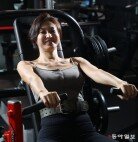`Win-Win` Proposition Lifting Hyundai Motor, Suppliers O`seas
`Win-Win` Proposition Lifting Hyundai Motor, Suppliers O`seas
Posted March. 30, 2010 03:01,
Huaxin, the primary auto parts supplier of Hyundai Motor, entered the Chinese market with the Korean automaker in November 2002 to set up Beijing Huaxin, including a fuel tank plant 27,000 square meters in area at the Chinese capitals Pinggu district.
Huaxin earned 180 billion won (159 million U.S. dollars) in revenue last year by supplying fuel tanks to Beijing Hyundai Motor Company. The atmosphere of the plant was filled with heat from welding and injection-molding work performed by 400 Chinese employees Friday evening at 6 p.m., though the workday is supposed to be from 8 a.m. to 5 p.m. They were working overtime after eating dinner for around 30 minutes.
A Chinese worker on the manufacturing line told The Dong-A Ilbo, Working overtime is challenging, but I can earn as much as 2,000 yuan (293 dollars) in extra pay per month. The union seems to have little complaints over extra work and follows the companys policy well.
Production manager Choi Yeong-dae said, We are flooded with orders so our Chinese employees work 280 hours a month without taking public holidays off. In other words, they work 60 hours more than their peers in Korea a month.
He said getting workers to put in such long hours in Korea would be impossible because unions have much influence over company decisions.
Beijing decided to expand tax breaks for small and medium-size cars with engines below 1.6 liters as part of a policy to exempt the purchasing tax to lift domestic demand. Accordingly, Beijing Hyundai Motor Company sold 570,000 cars last year alone, up 93.6 percent year-on-year. Industry experts say this was possible because Hyundai Motor, which is strong in small and medium-size vehicles, consistently expanded output despite the global economic crisis last year and refrained from production cuts and restructuring.
Auto parts makers who entered overseas markets with Hyundai Motor in line with the companys overseas production expansion also contributed to the carmakers success. Hyundai Motor has 156 suppliers, 70 percent of which entered the business in Korea. This strategy is in stark contrast to that of Toyota, which failed to control quality by raising its dependence on suppliers based in the U.S.
Suppliers in the host country are also active in capacity expansion. For example, SL Corp., which supplies head lamps to Hyundai Motor, established Beijing Samlip Automotive Lighting Ltd. in China in January 2003. In September, SL is expected to secure an additional site for the Chinese plant of Germanys Hella, its technology alliance partner. In line with Hyundai Motors plan to build its third plant in Beijing, Beijing Samlip will secure a new facility on the site and begin operations next year.
Representatives of Hyundai Motors suppliers in Beijing unanimously said the organic partnership between Hyundai Motor and its suppliers, which enables the sharing of information and technology, is a win-win proposition for both parties.
The office of Beijing Samlip even had a document with a detailed production plan of Beijing Hyundai Motor Company per model and week posted on its entrance, attracting visitor attention. Kwon Byeong-uk, managing director of Beijing Hyundai Motor Company, said, Hyundai Motor notifies its production plans in advance every month, which allows us to fully dedicate our efforts to production and inventory management.
sukim@donga.com







